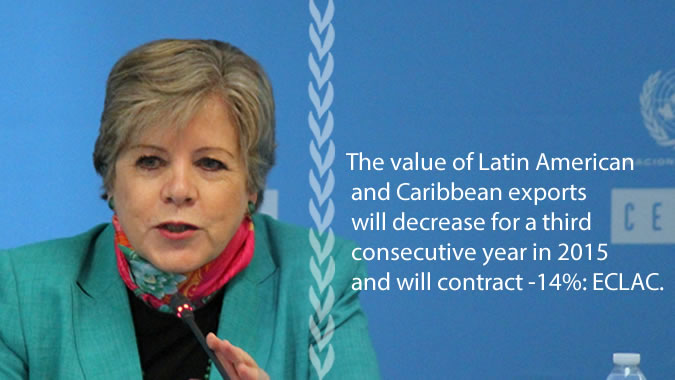United Nations Report Highlights Implementation Gaps in Cutting Red Tape for International Trade
Work area(s)
Survey conducted by the UN regional commissions, including ECLAC, provides data for 119 countries.
The United Nations Economic and Social Commission for Asia and the Pacific (ESCAP), together with all four other United Nations regional commissions, today launched the first global report on the implementation of measures to simplify import, export and transit procedures, calling for more to be done to cut trade costs and promote growth.
The inaugural Global Report of the Trade Facilitation and Paperless Trade Implementation Survey provides data for 119 countries and serves as a useful basis for bench marking and monitoring trade facilitation performance. Within the Asia-Pacific region, the report shows Singapore and the Republic of Korea leading East Asia in moving goods effectively. India tops the South Asian subregion, with Russia and Turkey leading in Europe and Central Asia. The top trade facilitation performer among these economies is the Netherlands.
According to the new report, efficient movement of goods is key to maintaining trade competitiveness, and enabling effective engagement of firms, in particular small and medium enterprises, with regional and global production networks. The global average implementation rate of the ambitious set of trade facilitation measures considered in the report is about53 per cent. Developed economies average more than75 per cent implementation, while Pacific Island developing economies barely reach 26 per cent.
As highlighted in the report, accelerating implementation of paperless trade measures will be crucial to reducing trade costs. The report also recommends the adoption of modern information and communication technologies, as well as development of legal frameworks to enable the exchange of electronic trade data and documents across borders.
United Nations Under-Secretary-General and Executive Secretary of ESCAP Dr. Shamshad Akhtar said: “These ‘next generation’ trade facilitation measures have great potential to reduce costs and boost trade, increasing the Asia-Pacific region’s export potential by more than$250 billion annually. This can only be achieved, however, through more effective cooperation between countries at the regional and global levels.” Dr. Akhtar added that more than 20 ESCAP member States are already actively engaged in developing an innovative regional agreement for the facilitation of cross-border paperless trade, and she encouraged other Asia-Pacific member States to participate.
The report outlines the extent to which key measures of the recent World Trade Organization Trade Facilitation Agreement are currently being implemented, showing that a significant number of developing economies, particularly in East Asia, Latin America and the Caribbean, have already acted on many of the commitments associated with the arrangement. For most countries, however, much still remains to be done. An integrated step-by-step approach is suggested, starting with building up institutional arrangements and inter-agency cooperation.
Overall, the report finds that most economies have already taken concrete steps towards streamlining trade procedures. The United Arab Emirates leads the Middle East and North Africa region and Benin and Mauritius lead in Sub-Saharan Africa. Several leaders emerge in Latin America and the Caribbean including Mexico, Colombia, Ecuador and Chile.
The survey, led by ESCAP, was developed in collaboration with the Organisation for Economic Co-operation and Development (OECD) and implemented by all of the United Nations regional commissions, namely: the UN Economic Commission for Africa (ECA), the UN Economic Commission for Europe (ECE), the UN Economic Commission for Latin America and the Caribbean (ECLAC), and the UN Economic and Social Commission for West Asia (ESCWA). The report was produced with the support of the United Nations Conference on Trade and Development, (UNCTAD), the International Road Transport Union (IRU), the International Trade Centre, (ITC), OCO and the Latin American and Caribbean Economic System (SELA).
Global and regional reports are available from this link.
Related content

Regional Trade at a Crossroads: Diversification and Integration in a Global Context of Low Growth
Latin American and Caribbean exports will contract -14% in 2015, in a downward trend that has been intensifying in the last three years, according to a new report by ECLAC.
Type
Country(ies)
- Latin America and the Caribbean
Related project(s)
Contact
Public Information Unit
- prensa@cepal.org
- (56 2) 2210 2040
